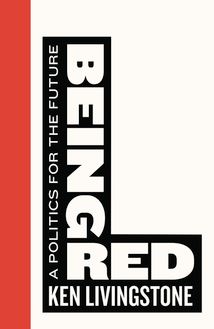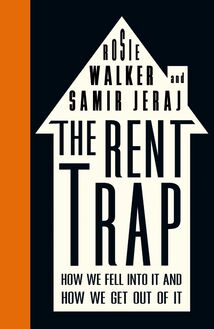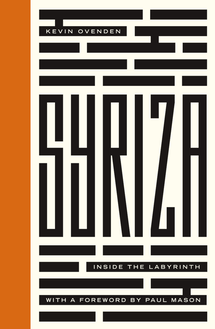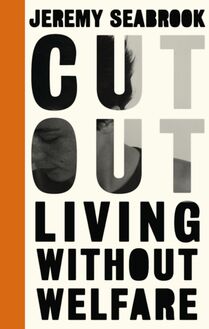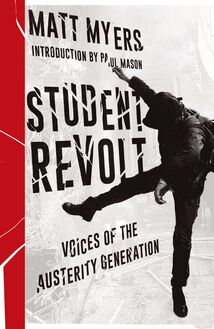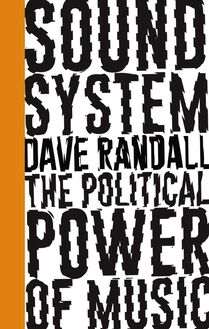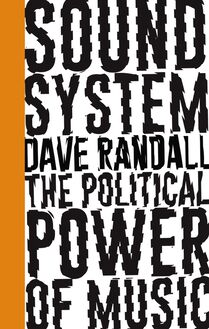-
 Univers
Univers
-
 Ebooks
Ebooks
-
 Livres audio
Livres audio
-
 Presse
Presse
-
 Podcasts
Podcasts
-
 BD
BD
-
 Documents
Documents
-
- Cours
- Révisions
- Ressources pédagogiques
- Sciences de l’éducation
- Manuels scolaires
- Langues
- Travaux de classe
- Annales de BEP
- Etudes supérieures
- Maternelle et primaire
- Fiches de lecture
- Orientation scolaire
- Méthodologie
- Corrigés de devoir
- Annales d’examens et concours
- Annales du bac
- Annales du brevet
- Rapports de stage
La lecture à portée de main
Vous pourrez modifier la taille du texte de cet ouvrage
Découvre YouScribe en t'inscrivant gratuitement
Je m'inscrisDécouvre YouScribe en t'inscrivant gratuitement
Je m'inscrisEn savoir plus
Vous pourrez modifier la taille du texte de cet ouvrage
En savoir plus

Description
In Cut Out: Living Without Welfare, Jeremy Seabrook speaks to people whose support from the state - for whatever reason - is now being withdrawn, rendering their lives unsustainable. In turns disturbing, eye-opening, and ultimately humanistic, these accounts reveal the reality behind the headlines, and the true nature of British politics today.
Published in partnership with the Left Book Club.
Series Preface
Acknowledgements
Introduction
1. Welfare Cuts: The Wider Context
2. Being There: A Sense of Place
3. The Fall of Industrial Male Labour
4. Benefit Fraud
5. A Fate Foretold
6. Sheltered Accommodation
7. Zubeida
8. Azma
9. Kareema
10. Born at the Wrong Time
11. Abigail
12. Adele and Clifford
13. Graham Chinnery: Zero Hours
14. Andrea
15. Carl Hendricks
16. Arif Hossein
17. The Idea of Reform
18. People with Disability
10. Amanda
20. Belfort: Survival
21. Lorraine: In the Benefits Labyrinth
22. Jayne Durham
23. Paula
24. Violence against Women
25. Faraji
26. ‘Doing the Right Thing’
27. Grace and Richard
28. ‘It Can Happen to Anyone’
29. Andrew
30. Lazy Categories
31. The Secret World of ‘Welfare’
32. Self-Employment as a Refuge
33. Joshua Ademola
34. Dayanne: The Right Thing and the Wrong Result
35. The Roots of Alienation
36. Imran Noorzai
37. Farida: The Duty of Young Women
38. Welfare and Mental Health
39. Alison: The Loneliness of Being on Benefit
40. Kenneth Lennox
41. Marie Fullerton
42. Gus: A Heroic Life
43. Stolen Identities: Epitaph for a Working Class
Conclusion
Further Reading
Sujets
Economic Disparity
Social Classes
Political Process
Social Science
POLITICAL SCIENCE
Sociologie, société et politique
Reino Unido
21st century
Austerity
Welfare
Welfare State
General officer
United Kingdom
Social class
Keynesian economics
Great Britain
General
Clement Attlee
État-providence
Royaume-Uni
Informations
| Publié par | Pluto Press |
| Date de parution | 20 juin 2016 |
| Nombre de lectures | 0 |
| EAN13 | 9781783718047 |
| Langue | English |
Informations légales : prix de location à la page 0,0498€. Cette information est donnée uniquement à titre indicatif conformément à la législation en vigueur.
Extrait
Cut Out
Join the Left Book Club
Membership of the Left Book Club costs just £40 a year, for which you will receive four specially commissioned or licensed titles each year, plus other members’ benefits, such as access to events, newsletters, and special offers on non-LBC titles.
To join please visit www.leftbookclub.com
Also available
Being Red
A Politics for the Future
Ken Livingstone
Syriza
Inside the Labyrinth
Kevin Ovenden
Foreword by Paul Mason
The Rent Trap
How We Fell Into It and How We Get Out of It
Rosie Walker and Samir Jeraj
Cut Out
Living Without Welfare
Jeremy Seabrook
To Barrie Blower, in homage and friendship.
First published 2016 by Pluto Press
345 Archway Road, London N6 5AA
www.plutobooks.com
Copyright © Jeremy Seabrook 2016
The right of Jeremy Seabrook to be identified as the author of this work has been asserted by him in accordance with the Copyright, Designs and Patents Act 1988.
The Left Book Club, founded in 2014, company number 9338285 pays homage to the original Left Book Club founded by Victor Gollancz in 1936.
British Library Cataloguing in Publication Data
A catalogue record for this book is available from the British Library
ISBN 978 0 7453 3618 3 Paperback
ISBN 978 1 7837 1803 0 PDF eBook
ISBN 978 1 7837 1805 4 Kindle eBook
ISBN 978 1 7837 1804 7 EPUB eBook
This book is printed on paper suitable for recycling and made from fully managed and sustained forest sources. Logging, pulping and manufacturing processes are expected to conform to the environmental standards of the country of origin.
Typeset by Stanford DTP Services, Northampton, England
Simultaneously printed in the European Union and United States of America
Contents
Series preface
Acknowledgements
Introduction
Welfare cuts: the wider context
Being there: a sense of place
The fall of industrial male labour
Benefit fraud
A fate foretold
Sheltered accommodation
Zubeida
Azma
Kareema
Born at the wrong time
Abigail
Adele and Clifford
Graham Chinnery: zero hours
Andrea
Carl Hendricks
Arif Hossein
The idea of reform
People with disability
Amanda
Belfort: survival
Lorraine: in the benefits labyrinth
Jayne Durham
Paula
Violence against women
Faraji
‘Doing the right thing’
Grace and Richard
‘It can happen to anyone’
Andrew
Lazy categories
The secret world of ‘welfare’
Self-employment as a refuge
Joshua Ademola
Dayanne: the right thing and the wrong result
The roots of alienation
Imran Noorzai
Farida: the duty of young women
Welfare and mental health
Alison: the loneliness of being on benefit
Kenneth Lennox
Marie Fullerton
Gus: a heroic life
Stolen identities: epitaph for a working class
Conclusion
Further Reading
Series preface
The first Left Book Club (1936–48) had 57,000 members, had distributed 2 million books, and had formed 1,200 workplace and local groups by the time it peaked in 1939. LBC members were active throughout the labour and radical movement at the time, and the Club became an educational mass movement, remodelling British public opinion and contributing substantially to the Labour landslide of 1945 and the construction of the welfare state.
Publisher Victor Gollancz, the driving force, saw the LBC as a movement against poverty, fascism, and the growing threat of war. He aimed to resist the tide of austerity and appeasement, and to present radical ideas for progressive social change in the interests of working people. The Club was about enlightenment, empowerment, and collective organisation.
The world today faces a crisis on the scale of the 1930s. Capitalism is trapped in a long-term crisis. Financialisation and austerity are shrinking demand, deepening the depression, and widening social inequalities. The social fabric is being torn apart. International relations are increasingly tense and militarised. War threatens on several fronts, while fascist and racist organisations are gaining ground across much of Europe. Global warming threatens the planet and the whole of humanity with climate catastrophe. Workplace organisation has been weakened, and social democratic parties have been hollowed out by acceptance of pro-market dogma. Society has become more atomised, and mainstream politics suffers an acute democratic deficit.
Yet the last decade has seen historically unprecedented levels of participation in street protest, implying a mass audience for radical alternatives. But socialist ideas are no longer, as in the immediate post-war period, ‘in the tea’. One of neoliberalism’s achievements has been to undermine ideas of solidarity, collective provision, and public service.
The Left Book Club aspires to meet the ideological challenge posed by the global crisis. Our aim is to offer high-quality books at affordable prices that are carefully selected to address the central issues of the day and to be accessible to a wide general audience. Our list represents the full range of progressive traditions, perspectives, and ideas. We hope the books will be used as the basis of reading circles, discussion groups, and other educational and cultural activities relevant to developing, sharing, and disseminating ideas for radical change in the interests of the common people at home and abroad.
The Left Book Club collective
Acknowledgements
I would like to thank all the people in the West Midlands who have helped with this book for their kind contributions.
Jeremy Seabrook
2016
...those whom God doth punishe with povertie, let no man seeke to oppresse with crueltie
—An Ease for Overseers of the Poore, published anonymously in Cambridge, 1601
Introduction
‘Rich’ and ‘poor’ are ancient, apparently inseparable opposites; sometimes antagonistic (the rich monopolise the necessities of the poor), at others symbiotic (without the wealth-creators we cannot afford the social amenities we need). The words are so clear, and so deeply embedded in linguistic habit, that we have almost ceased to ask how people come to be included in these categories: they are self-evident, unavoidable. The rich, like the poor in scriptural admonition, will always be with us.
This book is concerned with what makes people poor in modern societies, and what prompts governments to relieve or to aggravate poverty. The economic condition of ‘the poor’ – an abstract collective noun – has been the object of much attention throughout history, not least because of their capacity to disrupt or interfere with the established order. Their social and political potential for mischief has been a matter of great concern to ruling elites. They have been in receipt of both punishment and leniency, according to the temper of the age. It might have been thought that in countries as rich as ours, the poor would be treated with consideration, if not tenderness. This is far from being the case.
The condition of poor people in societies of unparalleled wealth raises certain questions. Since most people in Europe, North America and Australia are no longer poor, those who remain so have become victims of a popular contempt that was absent when a majority of the people lived in poverty. (What the wealthy minority thought about them is another matter, since they have been constantly referred to in disparaging terms – the great unwashed, the masses, the hoi polloi, the common people; more recently, the underclass, trailer trash, losers.)
‘The poor’ have been only crudely differentiated, usually into groups understood to be meritorious or culpable, that is, deserving and undeserving. Much effort has been expended on defining the virtuous poor by ascribing exculpatory causes to their poverty. Everyone knows that widows and orphans, the lame, halt and blind may be poor through no fault of their own; while the idle and vicious, the feckless and addicted, the degenerate and improvident are thrown into the category of the perverse and wilful. If an aura of piety surrounds the idea of the blameless poor, denunciations of those who have brought upon themselves their own misfortune are far more resonant and morally charged. There is something satisfying in the condemnation by the righteous of those they see as unworthy and excluded. And a minoritised poor – welfare cheats, scroungers, skivers, parasites, free-loaders, beggars – attract a lexicon of abuse in rich societies, in which majorities no longer insecure can congratulate themselves on their own (often less than merited) prosperity, while expressing their loathing for those unable, for whatever reason, to avail themselves of the abundance which developed societies have placed, at least in theory, within the reach of everyone.
The economic function of the poor in our time is twofold. They serve first of all as a constant reminder that yet more economic growth is essential in order to remedy their plight and to lessen their – already diminished – numbers; and secondly as a spur to further self-enrichment by those who have already achieved much, since to fall into poverty is a fate not to be contemplated. Poverty must remain grim, a state to be dreaded. For this reason, poverty in the contemporary rich world has a strong element of contrivance: it must remain as a deterrent, in order to encourage the respectable and the well-to-do to avoid it all costs.
There is clearly a contradiction in these purposes: piety is at war with condemnation. This is not difficult to explain – the ‘need’ for constant economic expansion must be maintained, since this is the vital purpose of the economic system itself; yet this increasing plenty must still exclude significant cohorts of people, in order that they may be brandished as a scarecrow at those comfortably situated. In other words, the poor must be punished, but they must on no account be permitted to vanish, for their presence is essential: to be scourged, but not into disappearance.
This dual function makes for a certain c
-
 Univers
Univers
-
 Ebooks
Ebooks
-
 Livres audio
Livres audio
-
 Presse
Presse
-
 Podcasts
Podcasts
-
 BD
BD
-
 Documents
Documents
-
Jeunesse
-
Littérature
-
Ressources professionnelles
-
Santé et bien-être
-
Savoirs
-
Education
-
Loisirs et hobbies
-
Art, musique et cinéma
-
Actualité et débat de société
-
Jeunesse
-
Littérature
-
Ressources professionnelles
-
Santé et bien-être
-
Savoirs
-
Education
-
Loisirs et hobbies
-
Art, musique et cinéma
-
Actualité et débat de société
-
Actualités
-
Lifestyle
-
Presse jeunesse
-
Presse professionnelle
-
Pratique
-
Presse sportive
-
Presse internationale
-
Culture & Médias
-
Action et Aventures
-
Science-fiction et Fantasy
-
Société
-
Jeunesse
-
Littérature
-
Ressources professionnelles
-
Santé et bien-être
-
Savoirs
-
Education
-
Loisirs et hobbies
-
Art, musique et cinéma
-
Actualité et débat de société
- Cours
- Révisions
- Ressources pédagogiques
- Sciences de l’éducation
- Manuels scolaires
- Langues
- Travaux de classe
- Annales de BEP
- Etudes supérieures
- Maternelle et primaire
- Fiches de lecture
- Orientation scolaire
- Méthodologie
- Corrigés de devoir
- Annales d’examens et concours
- Annales du bac
- Annales du brevet
- Rapports de stage
